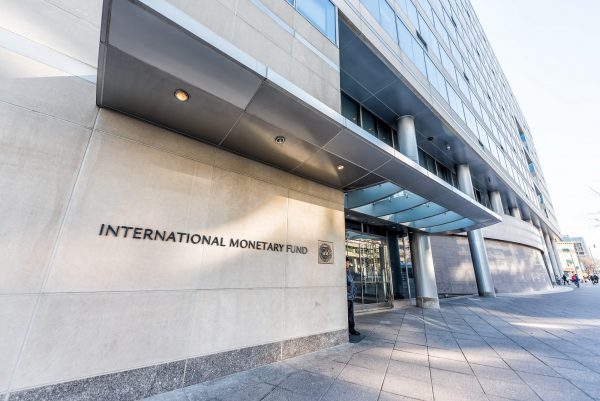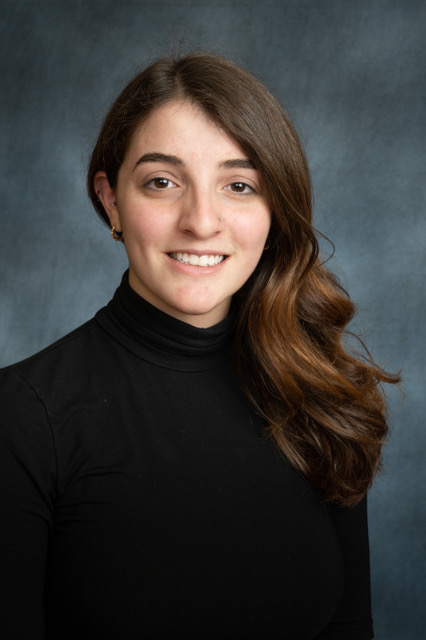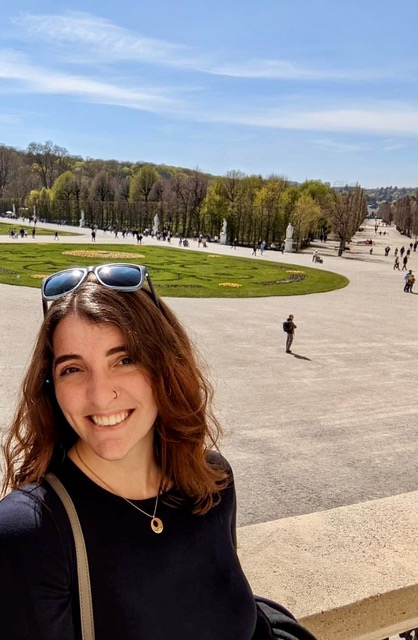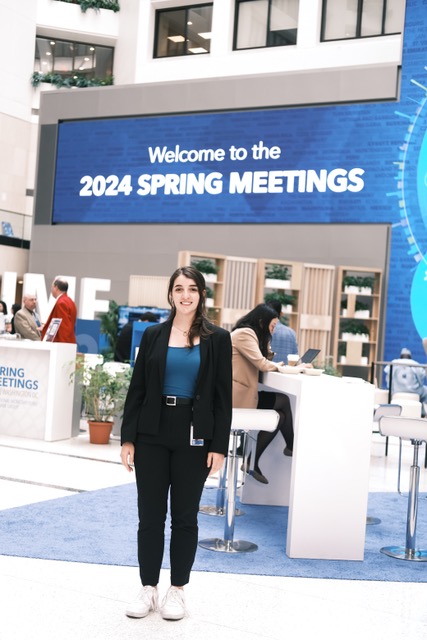
The path that led Grace Tiberi from Golden, Colorado to Washington, D.C working at the International Monetary Fund (IMF) began in a surprising place: K-Pop.
"It was actually part of the reason I chose my major," she admits. “I started out by saying ‘wow, looking up Korean culture is cool’ which led me to look up more about other world cultures; I really enjoyed researching these other places, and then I started to think, ‘This could be my path forward in school’.”

What started as a casual interest in learning about Korean culture opened her up to the exciting possibilities of global affairs, propelling her toward a degree in International Studies with a minor in Spanish, a language she realized she could utilize in many different professions (though Tiberi continued her love of K-Pop with the K-Pop dance club at CSU).
A pivotal moment in Tiberi’s academic journey was Professor Meagan Todd's course, "Interdisciplinary Approaches to Globalization." The class, which she later returned to as a teaching assistant, deepened her interest in global affairs. “That class was so dynamic in modern events that it changed along with the world and how I viewed it as a student and then as a TA," she says. The course tackles critical analysis, creativity, group work, public speaking, discussion, debate, reading, writing, and research. "Everyone should take that class,” she advises.
After graduation, Tiberi had wide opportunities to choose from in the job market. She set her sights on Washington D.C., the heart of international diplomacy in the U.S. This global hub offered access to political institutions, international organizations, and culture. "International Studies is such a broad field," reflects Tiberi, "it encompasses science, art, social issues, and politics – it opens so many doors."
The prospect of interviewing with a prestigious international organization like the IMF could be intimidating for recent graduates. Tiberi approached it with the same determination she'd applied to learning languages. She explains, "You study in school, you grasp the fundamentals, but when you go to study abroad, you feel lost, like you don’t know anything. Then after a week or so, something catches, and you start conceptualizing faster and faster. That's what starting my career felt like,” she reports. “I hadn't written a formal job application before, but I had persuasive writing skills from my classes. I hadn't participated in a major job interview, but I had done group projects and presentations every semester. Everything built off what I learned ...once I was immersed in the job search, those skills kicked in.” With each new challenge, the skills she honed at CSU seamlessly translated into the professional world, proving that her academic foundation was enough to help her thrive.


Today, Tiberi is surrounded by a rich mosaic of cultures at the IMF. The organization, comprised of 190 member countries, plays a vital role in fostering global economic stability. From aiding Colombia in modernizing its tax structure to assisting post-conflict reconstruction efforts in Kosovo, the IMF tackles complex financial challenges faced by nations worldwide. While the specifics of her work remain confidential, Tiberi utilizes her language skills and expertise in international studies in the Institute of Capacity Development at the IMF where she manages and administers courses for governments to strengthen their financial systems and craft sound economic policies. Ultimately, her work, as outlined by the IMF website, contributes to building stronger economies, creating jobs, and achieving crucial goals like poverty reduction and improved public services. Tiberi’s fluency in Spanish, which she credits to her semester-long education abroad experience in Barcelona, Spain during her time at CSU, allows her to work with representatives from countries around the world on a deeper level. But more importantly, she emphasizes, "Spanish comes in most handy for bonding with my coworkers." Tiberi is always looking for connections that can be made, a quality that is both a key problem-solving skill and a representation of her values.
Beyond the practicalities of language, Tiberi's studies in International Studies instilled in her a profound sense of global citizenship. "We're all citizens of the world, united by our shared humanity," she declares. "This realization truly resonated with me and helped me see my role in the grander socio-political sphere.”
“Now, when I look at the differences on my team at work, I see opportunity to approach our challenges from different perspectives,” she says. Her ability to embrace diverse perspectives and foster connections has become a cornerstone of her work when she’s working alongside economists, representatives of central banks, and scholars.
We're all citizens of the world, united by our shared humanity. This realization truly resonated with me and helped me see my role in the grander socio-political sphere.”
One memory from her early days at the IMF exemplifies this. "After work, a European colleague and I were discussing our love for New York City and the pros and cons of taking the bus versus the train," she recalls. "This sparked a lively discussion – an Ethiopian coworker chimed in about their transportation system, and a Chinese colleague shared their experiences with high-speed rail. It was a fascinating exchange that revealed not just preferred travel methods, but also the diverse backgrounds and motivations that led each of us to this international organization,” she realized.
“In that moment, I saw a microcosm of the world – a group of reflective, hardworking global citizens that are always digging for deeper understanding about one another.”
This anecdote serves as a reminder that our greatest strengths in improving global relations can be our differences, when shared and understood, a lesson that resonates deeply with Tiberi’s educational journey.
"CSU helped me see the world in a way that is both critical and hopeful," she says. "It gave me the tools to understand the complexities of our world, but also the confidence to know that I can contribute to solving them." As she continues to navigate the world of global finance at the IMF in D.C, Tiberi keeps her days in Fort Collins in her back pocket like a well-worn compass, forever pointing toward new discoveries.
